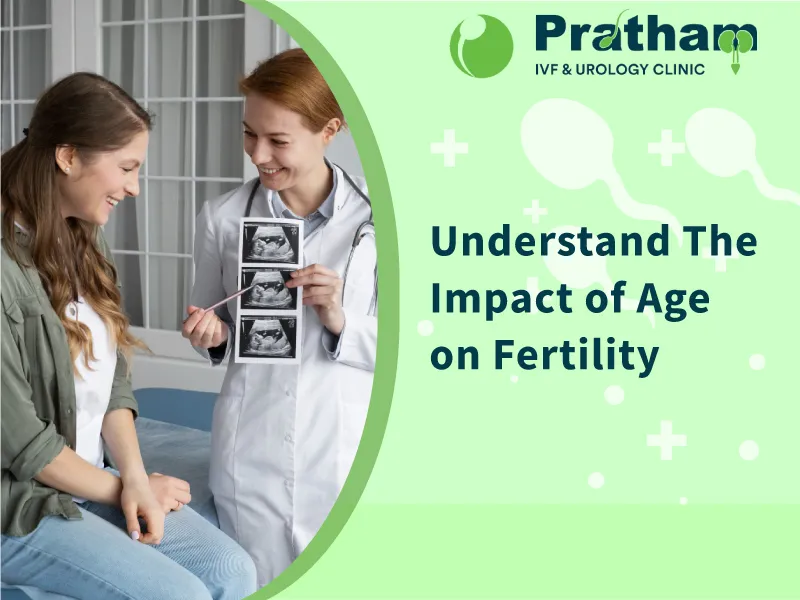
The Impact of Age on Fertility: How It Affects Children's Health
The capacity to become pregnant and bear children is an essential component of human existence. Age, however, has a big impact on a person's ability to procreate; fertility is not a constant blessing. As they get older, both men and women see changes in fertility; however, women are more affected by a biological clock that limits their ability to procreate. This blog will discuss the effects of aging on fertility, the biological factors that underlie it, and the consequences for assisted reproductive technologies and family planning.
Understanding Female Fertility:
The menstrual cycle and ovulation are closely related to female fertility. The ovarian reserve of women is limited to 2–20 million eggs at birth, and it rapidly decreases over time. The quality and number of eggs decrease as women get closer to their late 30s and early 40s, which increases the likelihood of chromosomal defects in the embryos and makes spontaneously occurring conception more difficult.
The Decline in Fertility with Age:
- Ovarian Function : The most important factor affecting female fertility is the aging process's cumulative effects on ovarian function and egg quality and quantity. The amount of eggs that remain in the ovaries diminishes with age, and the eggs that do remain are more likely to have genetic defects, which lowers the likelihood of a successful conception and raises the risk of miscarriage.
- Menstrual Cycle Irregularities : Age-related hormonal changes can lead to irregular menstrual cycles, making it difficult to predict ovulation accurately. This irregularity can further complicate natural conception attempts.
- Increased Time to Conceive : It usually takes a woman a longer time to conceive when her ovarian reserve declines. After the age of 35, there is a noticeable fall in the likelihood of becoming pregnant, and by the age of 40, the decline is more noticeable.
- Increased Risk of Pregnancy Complications : Advanced maternal age is associated with an increased risk of pregnancy complications such as gestational diabetes, preeclampsia, and preterm birth. Additionally, the risk of chromosomal abnormalities, particularly Down syndrome, increases with maternal age.
Male Fertility and Age:
Men's fertility declines with age, but more gradually and subtly than women's, while women's biological clocks are clearly defined. It's crucial to remember, though, that males can father children later in life than women can. However, a higher incidence of genetic diseases and specific health issues in kids has been linked to advanced paternal age.
Family Planning and Assisted Reproductive Technologies:
Family planning is significantly impacted by the aging population's diminishing fecundity. Delaying parenthood might make it more difficult for a couple to conceive naturally or need the use of assisted reproductive technologies (ART) to get pregnant. Here are some alternatives to think about:
- Timely Family Planning : It's important for individuals who desire to have children to be aware of the impact of age on fertility and make informed decisions about the timing of family planning. Discussing reproductive goals with a healthcare professional can provide valuable insights and guidance.
- Fertility Preservation : Fertility preservation techniques, such as egg freezing or embryo cryopreservation, are available to women who want to delay having children while they are still in their prime reproductive years, the 20s and 30s. By doing this, they can save their eggs or embryos for use at a later time, should their fertility become affected. This assisted in halting their fertility.
- Assisted Reproductive Technologies : ART, including in vitro fertilization (IVF), can assist in overcoming issues with fertility associated to aging. During in vitro fertilization (IVF), eggs are collected, sperm is added in a lab, and the resultant embryos are then placed into the uterus. Consideration may also be given to the use of donor sperm or eggs when an individual's own reproductive capacity is seriously impaired.
- Ovarian rejuvenation : Even though it's still in the research stage, treatments like platelet rich plasma (PRP) therapy or live stem cell therapy can be used in conjunction with other adjuvant medications to promote ovarian regeneration and increase the number of eggs produced during IVF.
- Genetic Screening : In embryos, chromosomal abnormalities are more likely to occur with increasing mother age. The likelihood of choosing chromosomally normal embryos for transfer increases when preimplantation genetic testing (PGT) is carried out during IVF cycles to check embryos for particular genetic disorders.
Why Choose Pratham IVF?
Pratham IVF happens to be a trusted, reputed, and reliable IVF Center in Ahmedabad, providing the best treatment at a competitive price. Here are a few reasons why Pratham IVF should be your first choice when it comes to IVF treatment.
- Adequately trained and vastly experienced team of experts
- More than two decades of experience
- State-of-the-art laboratories
- Use of modern tools and technologies
- High success rate
- Premium IVF Center in Ahmedabad
- Highly skilled and professional staff
Thus, at any point in time you feel infertility is ruining all your happiness in life, do not waste even a moment and book an appointment at Pratham IVF to enjoy parenthood.
 Ahmedabad Top Rated IVF Center
Ahmedabad Top Rated IVF Center



